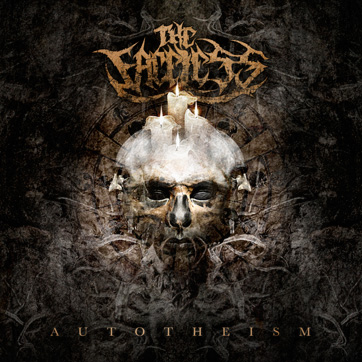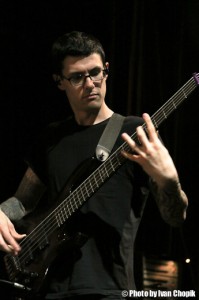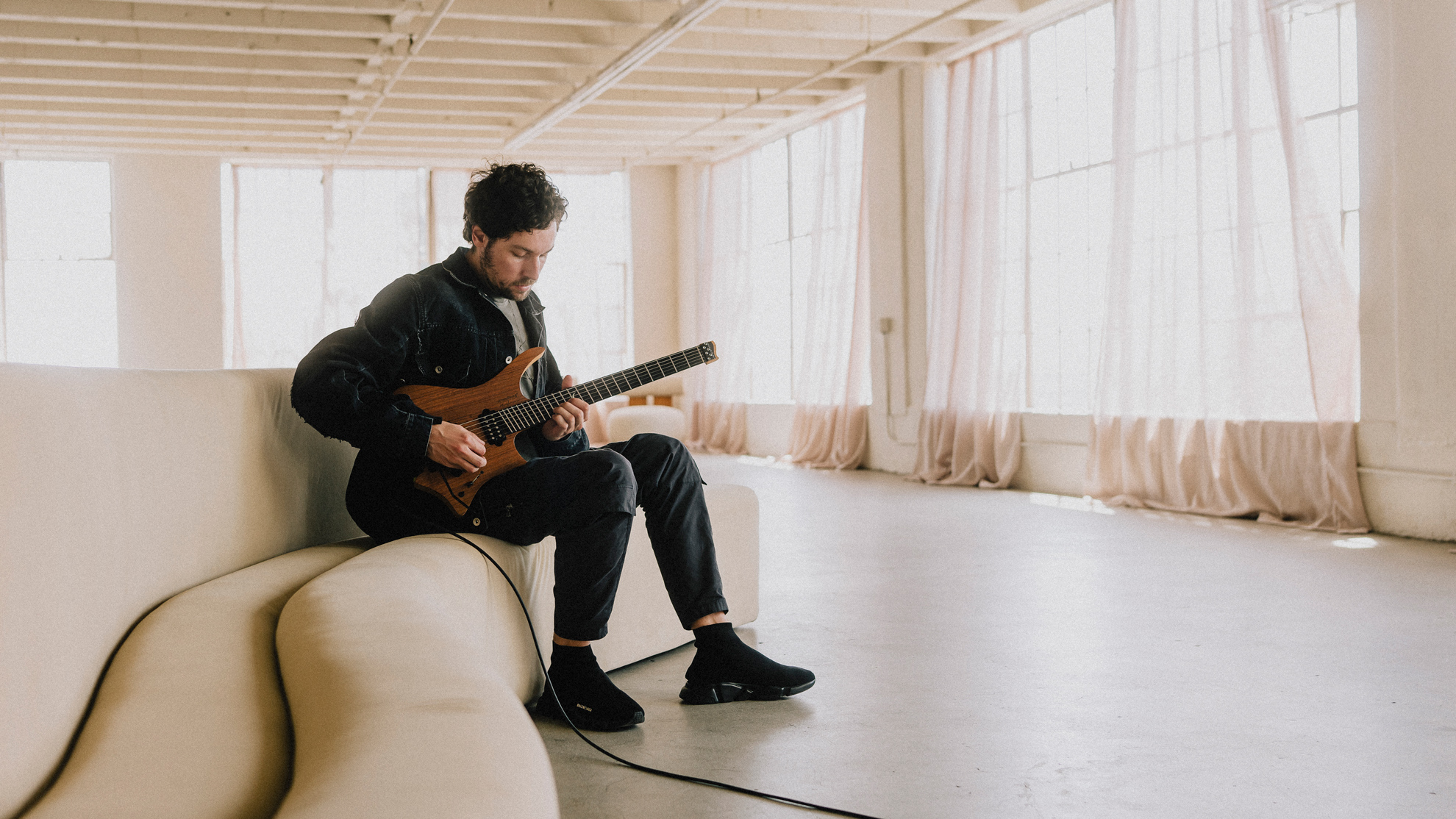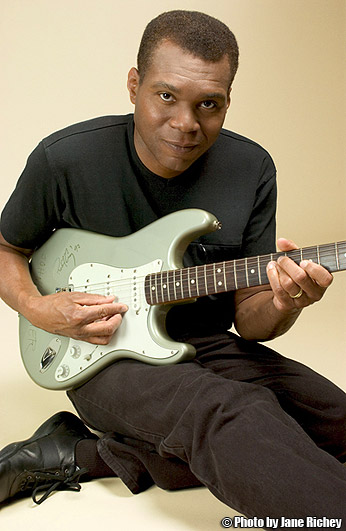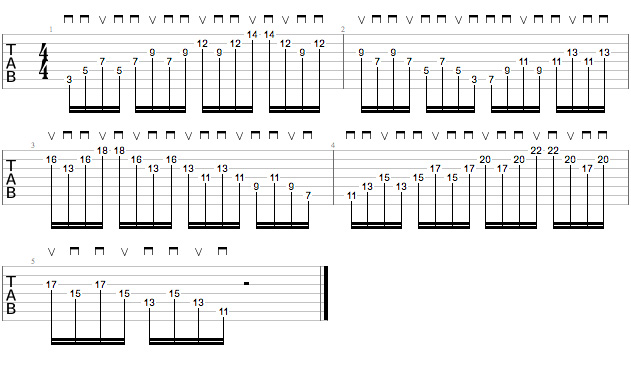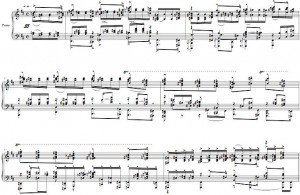 Michael Keene is the mastermind behind California’s progressive death metal band, The Faceless. They first broke onto the worldwide stage with the 2006 debut release Akeldama, bridging the gap between then budding, yet divided metalcore and technical death metal scenes. Known for his ultra-tight playing and dark, atmospheric compositions, Keene has also established himself as a standout producer on all three albums by The Faceless, as well as on releases from bands such as Veil Of Maya and Born Of Osiris. With 2012’s Autotheism, The Faceless have expanded their extreme metal palette with more progressive and melodic elements, as well as a greater presence of Keene’s clean vocals.
Michael Keene is the mastermind behind California’s progressive death metal band, The Faceless. They first broke onto the worldwide stage with the 2006 debut release Akeldama, bridging the gap between then budding, yet divided metalcore and technical death metal scenes. Known for his ultra-tight playing and dark, atmospheric compositions, Keene has also established himself as a standout producer on all three albums by The Faceless, as well as on releases from bands such as Veil Of Maya and Born Of Osiris. With 2012’s Autotheism, The Faceless have expanded their extreme metal palette with more progressive and melodic elements, as well as a greater presence of Keene’s clean vocals.
I had the opportunity to catch up with Michael Keene in Orlando, Florida:
IC: The Faceless were the first band to sign to Sumerian Records and you re-signed again for Autotheism. Can you tell me a little bit about how you got in touch with Sumerian to begin with, as the label was just starting out at the time?
MK: Sure, yeah. At the time, we were becoming a pretty popular local band, and we actually had some offers on the table from other labels. I won’t say which ones but, there were some labels making offers. I actually knew the owner of Sumerian, Ash [Avildsen], through his former band Reflux [which also included Tosin Abasi, Evan Brewer, and Vinny Vinh], whom we had played shows with in the past.
I ran into Ash at a show and he told me that he was starting a label. At that point, he was already a pretty successful booking agent. He had a handful of bands that were along the lines of us, so it definitely made sense in that regard, and we took a bit of a chance. There wasn’t really a track record there, so we didn’t know what would become of it, but we knew his track record as an agent and that he could get us on the tours that we needed to be on. So we rolled the dice and it ended up working out, obviously. It’s been a good experience, so we’ve just stuck with it.
IC: These other labels that you had offers from – were these established, larger labels?
MK: Yeah. Especially at the time… I mean Sumerian didn’t exist, so anything was bigger than that, but these are labels that were very much established that everybody knows or whatever. The deals they were offering, in some regards, were actually better deals in terms of advances and things like that, but I just had a good feeling about the Sumerian situation, and it worked out well. There were a lot of things that definitely were favorable over some of the other offers, so it made sense.
IC: It sounds like you were maybe looking at things more long term?
MK: Right, exactly.
IC: So did you guys end up signing a multi-album deal? Was it a one-record-at-a-time situation?
MK: Well, I don’t know if I should really say what the exact details of the deal were, but yeah, it was a shorter term deal than the other labels were offering.
IC: How is your position within the metal community different now, as opposed to when you were first signing on then? What are some ways in which that’s reflected? Obviously, you have grown as a band, but how do you feel that?
MK: We still get offers coming in on records and we have on every record. We’ve had other labels making us offers, and our stock has grown considerably, so to speak. I mean, I guess that puts us in a better position. It gives us better bargaining chips… to be perfectly honest, I don’t really think about it that much anymore. I try not to, because if I do, it just drives me crazy. Kind of makes me angry.
I don’t really like the business side of the music industry. It’s sort of… I don’t know, it’s kind of a mess. It is what it is, so I just try and be happy that I’m on a record label that can put out my records and lets me do my thing and doesn’t harass me about it.
| Click play above to watch part 1 of the video for this interview. |
IC: You’re handling all of the production duties for The Faceless, as well as a majority of the writing. How do you balance everything? At the end of the day, what’s the most important to you?
MK: Well, it’s all important. I guess the answer is sometimes I don’t balance it. I just do the best I can and hold on for dear life. I guess it’s become this hybrid conglomerate, so to speak. The writing is very intertwined with the recording and vice versa. The processes are kind of one and the same… I write things as I record them. That’s just something that’s developed with The Faceless, but I find that I do that for pretty much any music I write now, for the most part.
If I sit down and I’m playing guitar and I come up with some riff that I’m liking, I usually immediately start recording it, which will then create these permeations and the next thing you know, it grows and I add parts. Then, eventually, that can turn into a song. I like that process, as it’s allowed me to hear things objectively, before I become emotionally attached to them, so I can throw something out and then take the parts that I like and leave the stuff that I don’t like right away.
IC: Is all of your music writing going directly to The Faceless or do you have writing efforts outside the group as well?
MK: I definitely do have writing efforts outside of The Faceless. I do production for other bands. I have a catalog of songs that I’ve done just for various things like stock music and things like that. Also, I have another project that I’m going to do at some point in the future. I don’t know when, but it’s… there’s guitar in it, but it’s not really guitar crazy music or anything. It’s not pop music per se, but it’s got that pop sensibility, pop song structures and kind of dark music, but it’s …
IC: Is it more electronic driven, or…
MK: There’s definitely keyboards in it. I wouldn’t say it’s electronic driven. Well, I guess, maybe you could say that. Electronic is a very taboo word these days…

IC: I guess, in a sense I’m just trying to say, are there a lot of synths and are the beats played on an acoustic kit, or…
MK: It’s 50/50, yeah.
IC: Are there any production projects you’re working on right now that you can share with us?
MK: Well, not outside of my own music. I’ve kind of taken a little bit of time off of doing that actually.
IC: Any particular reason?
MK: I’m just a little worn out on it. It gets a little exhausting. I was starting to not like it, so I figured I’d take a break and come back to it and probably have a better outlook on the whole thing. I’ve been working on stuff for Faceless and other things that I’m doing, just sort of at a casual pace, I guess. Mainly, the cover album which has been talked about a little bit.
IC: Actually, let’s talk about that. Where are you at with the cover album right now?
MK: There are a few songs that are mostly done. Like I said, my writing process and recording process are very much one and the same, so one of the biggest challenges with this cover record is that a lot of the arrangements aren’t metal arrangements, and I’m trying to make them Faceless arrangements.
It’s actually pretty challenging for some of these songs; taking a pretty basic-structured song with a simple arrangement and figuring out to make it really complex and crazy, or whatever, is actually harder than you would think. It’s the type of thing where I’m tackling it one song at a time.
One of the first songs I started with was this Nine Inch Nails song, and I got the arrangement pretty much done before I even started tackling another one. So I got that one and I got a Depeche Mode one mostly done. Got a David Bowie one about half-way done… but there’s all kinds of stuff on [the album]. I don’t know exactly everything that’s going to be on it, yet. I have a lot of ideas of what I’d like to be on it, but there’s some that are definitely already set in stone.
IC: What’s the latest one you’ve worked on?
MK: The latest one I’ve been working on was the Depeche Mode one and the David Bowie one. I really like how the Depeche Mode one came out, it’s really cool. I did it as kind of a black metal arrangement.
IC: What’s the collaborative process like within the band? Is it mostly you putting together the arrangements and bringing the guys in to add their parts?
MK: Yeah, I mean, traditionally that’s sort of been how it has gone, and I’m definitely looking forward to working on new original Faceless material. Wes is right down the road from me, so I’m definitely looking forward to doing more of a collaborative effort for that.
Unfortunately, it’s something that has barely even entered my brain yet. I have a catalog of riffs, but I haven’t really even started working on a new album or anything for sure. I’ve been just trying to focus on the arrangements for the cover stuff, which I’ve been doing entirely by myself. But when I get the arrangements done, then everybody will come in and that’s when we’ll get everybody’s parts together and everybody will come up with their stuff.
IC: You guys have a lot in the pipes with between this cover album and a bunch of material for the next Faceless album. It sounds like you have a lot of things that are going to be coming out on a pretty continuous basis. I know you had a pretty long gap between Autotheism and Planetary Duality before that. Can you talk a little bit about what happened there? Did you take some timeq off?
MK: Yeah. I mean, I did take a little bit of time off… For me as a musician, doing death metal doesn’t always necessarily fulfill my musical aspirations in their entirety. Like I said, I feel like one of my stronger points as a musician is that I have a pretty strong pop sensibility, which I think kind of shines through in The Faceless in terms of being a death metal band. I think there’s definitely a popular music aesthetic that sort of rings through more than a lot of other death metal bands. It’s a little bit more structured and digestible to some degree.
Having said that, doing just death metal can get me down in the dumps a little bit sometimes, and I definitely had a little window of time there where I was pretty bummed out about what I was doing. But then, I got new dudes in the band, and it breathed new life into the whole thing. I started working on Autotheism, and I feel like I expanded quite a bit in the writing and everything on that. It made it really fun for me again. That gave me the second wind I needed. Now I’m feeling pretty good about everything. I don’t think it will take almost 4 years again.
IC: You just mentioned those line-up shifts. How solid do you feel about the line-up situation right now?
MK: I feel really good. I love all the dudes, and I love playing with them. We’re having a lot of fun, which is really important, you know? When you stop having fun, that’s bad. That’s real bad.
IC: Is that what happened, would you say, before?
MK: Sort of, yeah. I mean, I love all the old guys too. Brandon and Derek are still two of my best friends. I see them all the time. As a matter of fact, the person I was texting with before this interview was Brandon, actually.
If you’re not having fun anymore doing it, then it’s going to reflect in one way or another, and it just became a stressful thing. It was not as fun as it used to be. It’s nice to have that back, have that positive energy, and just everybody having a good time.
IC: Awesome. I’m glad to hear that.



